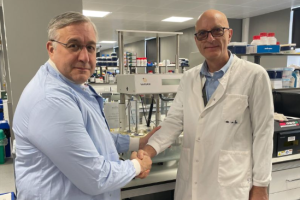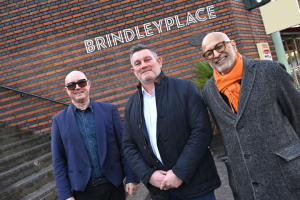University opens Venice base in £100m investment

The University of Warwick is opening a new site in Venice as part of a £100m investment in arts and humanities.
Overlooking the Grand Canal, the space within the Palazzo Giustinian Lolin building will be used for teaching course modules, seminars and summer schools.
The move follows the opening of Warwick’s RIBA-award winning, £60m Faculty of Arts Building, which provides a world-class centre for teaching and research, and includes an antiquities room, cinema, theatre studios, a media lab, along with multi-purpose events and exhibition spaces.
More than £42m has also been invested in improving its acclaimed Arts Centre, the largest outside of London, and new arts and humanities courses have been added to its prospectus to meet growing demand.
The overall investment in the arts over the last five years is believed to be the biggest in its history. Funding for STEM has also rocketed and will continue to grow significantly over the coming years.
Warwick’s vice chancellor, Professor Stuart Croft, insisted the future for arts and humanities were positive and would become even more relevant in the AI age.
“The arts and creative industries are one of the UK’s great global success stories contributing more than £100bn to the economy. Internationally the sector supports more than 50m jobs, employing more people under 30 than any other sector.
“The skills, knowledge and experiences gained from these degrees are going to become even more important over the next decade.
“We’re seeing strong interest in our arts and humanities courses, and many of our degrees are hugely oversubscribed. There’s no doubt the demand is there both from students and employers.
“We need to stop talking arts degrees down and start championing their growing value and importance – or we risk creating a self-fulfilling prophecy and end up damaging one of our greatest exports.
“The future isn’t STEM rather than the arts – it’s very clearly both.
“However, we must keep evolving so we reflect the fast-changing needs of society and employers, by offering opportunities to learn from different disciplines to provide a fully rounded education.”









